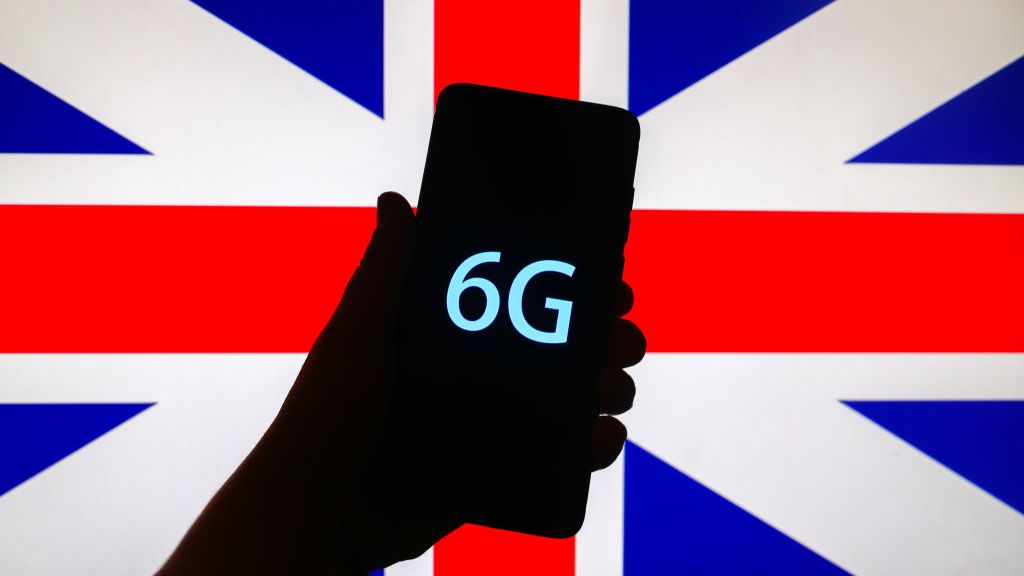Ericsson to invest tens of millions in UK 6G research unit
The Swedish company predicts the new technology will be used for smart agriculture and precision healthcare


Ericsson has announced plans to create a new 6G research unit in the UK as part of a multi-million-pound investment into a location that's yet to be decided.
The telecommunications company is set to invest tens of millions of pounds over the next ten years in a programme focussing on 6G research. It will explore areas such as artificial intelligence, network resilience and security, cognitive networks, and energy efficiency.
RELATED RESOURCE

Accelerating healthcare transformation through patient-centred medtech solutions
Seize the digital transformation opportunities to streamline patient care and optimise patient outcomes
The programme will involve 20 researchers and it intends to support PhD students who will get to work with academic and industry partners on 6G research projects.
Ericsson is still assessing a number of potential sites for the unit and said it is too soon to confirm a specific location. It said that its global research team were in the UK last week looking at potential areas.
The Swedish company expects 6G to become available in the 2030s and build on the capabilities of 5G. It predicts the new technology will deliver new use cases including precision healthcare, intelligent autonomous systems, and smart agriculture.
Ericsson has previously identified other use cases that will require 6G such as holograms, which could be augmented by touch. Another is that 6G will widen the capabilities of internet of things (IoT) devices, not only allowing them to share sensor data but also carry out intelligent decision-making.
“Ericsson's investment is a huge vote of confidence in the UK's innovative telecoms sector,” said Michelle Donelan, secretary of state for digital, culture, media, and sport (DCMS).
Sign up today and you will receive a free copy of our Future Focus 2025 report - the leading guidance on AI, cybersecurity and other IT challenges as per 700+ senior executives
“This pioneering research unit will create new jobs, support students, and bring together some of our country's finest minds to shape the future of telecoms infrastructure in the UK and across the globe.”
Donelan added that the government is set to publish a strategy underlining how the country will harness 6G to deliver more for people and business, although no exact time frame was given.
In 2021, Ericsson invested 18.1% of its annual global turnover in research and development (R&D), roughly SEK 42.1 billion (£3 billion). It has a total of 21 R&D centres across Europe, including Finland, Germany, France, Ireland, Spain, and Sweden. These units are carrying out more than 100 joint R&D collaborations with universities and academies.
Although countries around the world are currently rolling out 5G technology, many are now investing in 6G research. India, for example, stated in May 2022 it was aiming to roll out 6G technology by the end of the decade, even though it was still introducing 5G to the country.
Prime Minister Narendra Modi said the government had created a task force specifically for the 6G launch, although didn’t say what the technology would be used for.
The UK also announced a partnership with the Republic of Korea in July 2022, aimed at boosting 5G and 6G development. The UK was set to put forward £1.6 million to create R&D of interoperable solutions like Open Radio Access Network (Open RAN) technology, which was to be matched by £2.1 million from the industry.
Additionally, in November 2022, Japan was set to create a £400 million fund to support 6G research. The government was reportedly set to create a fund which would provide financial support for research into this technology for a number of years.
Zach Marzouk is a former ITPro, CloudPro, and ChannelPro staff writer, covering topics like security, privacy, worker rights, and startups, primarily in the Asia Pacific and the US regions. Zach joined ITPro in 2017 where he was introduced to the world of B2B technology as a junior staff writer, before he returned to Argentina in 2018, working in communications and as a copywriter. In 2021, he made his way back to ITPro as a staff writer during the pandemic, before joining the world of freelance in 2022.
-
 Redefining resilience: Why MSP security must evolve to stay ahead
Redefining resilience: Why MSP security must evolve to stay aheadIndustry Insights Basic endpoint protection is no more, but that leads to many opportunities for MSPs...
-
 Microsoft unveils Maia 200 accelerator, claiming better performance per dollar than Amazon and Google
Microsoft unveils Maia 200 accelerator, claiming better performance per dollar than Amazon and GoogleNews The launch of Microsoft’s second-generation silicon solidifies its mission to scale AI workloads and directly control more of its infrastructure
